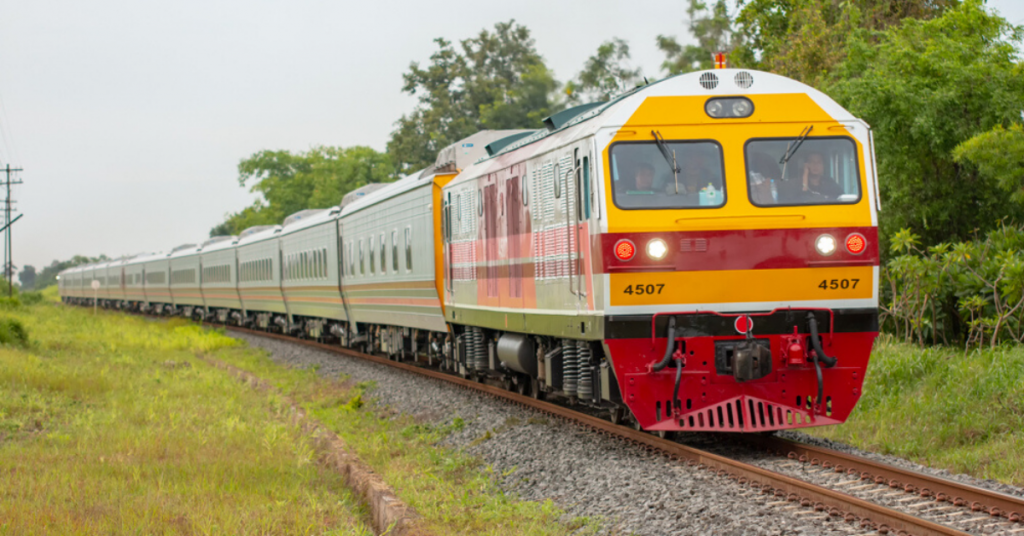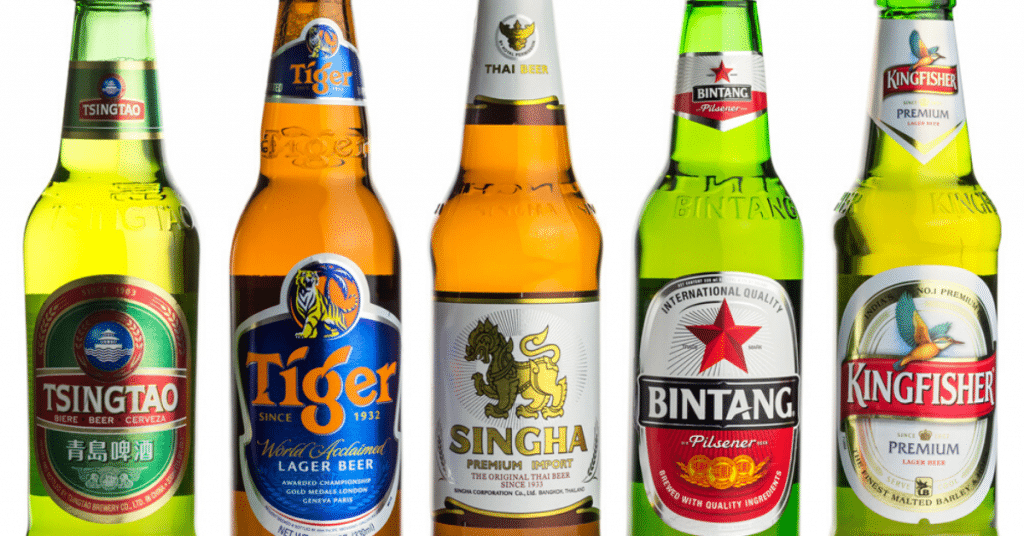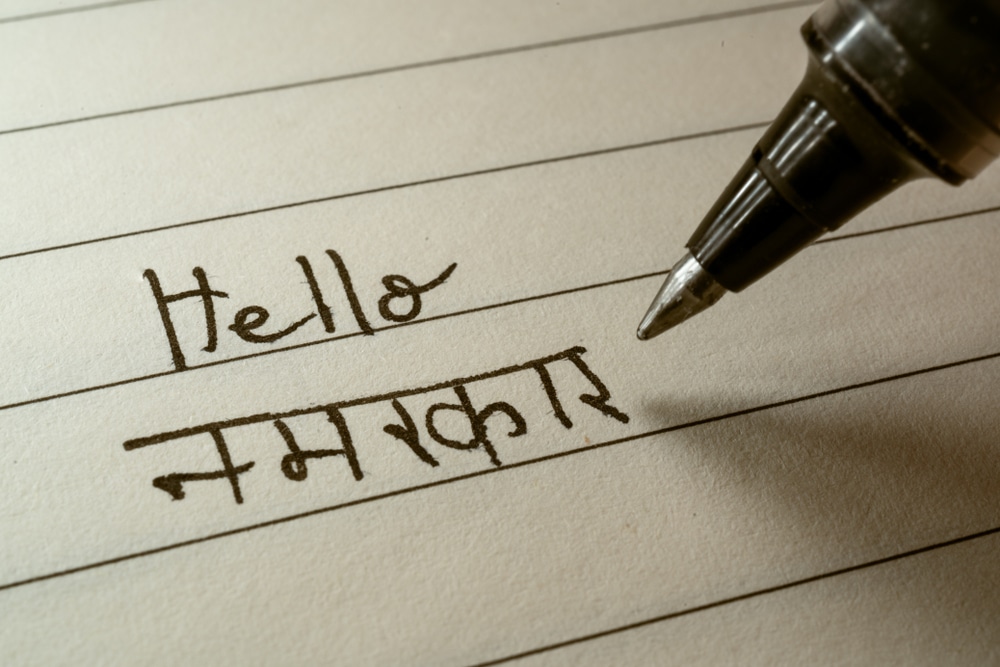Around the 17th century, the Hindi Language was originated by a mix of Popular languages of the areas around Delhi, with Urdu and Persian. Statistics show that Hindi is spoken by 425 million people as their first language and 120 million people as their second language.
According to the census of 2001, Hindi is spoken by approximately 43% of the Indian population. However, Hindi is not just limited to India. It is also spoken in Bangladesh, Mauritius, Yemen, and Uganda.
Long before the British invaded India and East India Company set up their trade in India, we were already speaking some of the English words. Hobson-Jobson, in his book The Definitive Glossary of British India published in 1886, states that some English words like Ginger, Pepper, and Indigo entered India through the ancient Greek and Roman trade.
Today we speak more English words in our day to day life, the Hindi translation and origin of which we are not even aware of.
1. Engineer

History:
Derived from Latin word ingeniare (“to create, generate, contrive, devise”), the word Engineer was first used in ancient Egyptian eras. As per the Encyclopedia Britannica, the first-ever engineer was Imhotep, the builder of the Step Pyramid at Saqqara, Egypt. Dating back to 2550 BC.
Usage in our regular lives:
Today we use the word Engineer from career options to new inventions and inventors, every place found the usage of the word in our regular lives.
Even though people do say अभियन्ता in the Hindi Language, a word equivalent to its closest translation, there is no definite Hindi translation for the word in our regular lives.
2. Tie

History:
Neck Ties are believed to originate during the 17th century when King Louis XIII hired Croatian mercenaries whilst the 30-year war in France. These Croatian Mercenaries used to wear a piece of cloth around their neck, as a part of their uniform.
Usage in our regular lives:
Today, we commonly use the word, yet there is no Hindi translation for the word one would find. Experts say that in Hindi language, translation for the word is कन्ठलंगोट, but there is no definite translation for the word available as per online AI and translation sources.
Also Read: 10 Big Brands with Hindi Taglines
3. Laptop

History:
The term Laptop was first coined in the early 1980s to describe a computer system that is portable and mobile enough to be used over one’s lap. The word Laptop has found its way in our daily lives with the advancement of science and technology.
Usage in our regular lives:
The word laptop has deviated to other words like Notebook, Ultrabook, etc. I am not aware of a proper Hindi translation of this word that is used almost every day.
4. Mobile

History:
The word “Mobile” was first used in the late 15th Century. The word has its roots from Latin word mobilis meaning movable, loose, or not firm.
Since then the word popularized a lot and found its entry to modern English as an adjective to describe movable objects. The word Mobile Phones became popular to describe the movable phone and not fixed or used only when wired.
Usage in our regular lives:
Today the word Mobile is used by everyone to describe our new age mobile phones in their regular dialects. Hindi speakers use the word ‘mobile’ or ‘phone’ in everyday conversation.
5. Air conditioner

History:
Air-conditioners or AC’s that we are so well aware of today and deliberately use for keeping the thermal conditions indoors at a check have its history of nomenclature.
Air Conditioner, as a combined word was first used in 1938. Since then, Air conditioner as a word in the English Language and other languages has been extremely popular.
Usage in our regular lives:
Air Conditioners are widely used everywhere. But the question is if there are any native translations for the same. वातानुकूलन is a possible Hindi translation- however, most people will not understand this word or think it to mean an AC.
6. Rail

History:
Today the word Rail is used to associate with train tracks. But the convention wasn’t that earlier. Old French reille meaning “bolt or bar”, regla from Vulgar Latin and regula from Latin was used to describe a straight piece of wood that is used to guide.
Usage in our regular lives:
The Brits introduced the railways in India and hence the word. I think one can’t find a Hindi translation for the word online or in the dictionaries.
7. Beer

History:
Beer is one of the most popular alcoholic beverages in today’s world. The invention of the drink dates back to 5400 years ago.
Usage in our regular lives:
Beer was introduced in India around the early 1700s. Later breweries were set up to commercial manufacture. But there is no Hindi translation available for the word in Hindi.
8. Coat

History:
In the early 14th century, the fashion of wearing a garment that was essentially an over garment came into the picture. Old French word – “ cote” Frankish word “kotta”, Germanic sources of Old Saxon word – “kot ” and German word – “Kotze” meaning a coarse cloth used as an over garment is how the nomenclature of the word COAT came to place.
Usage in our regular lives:
With such wide popularity and individuals adapting to fashion worldwide, I think we never asked the question of our native translated counterpart of a COAT.
9. Metro

History:
The word Metro was first used in 1904 when the Paris Underground metro service was about to start. Metro as a word was derived from the French abbreviation of Chemin de Fer Métropolitain “Metropolitan Railway”. French chemin de fer “railroad” translates to an iron road.
Usage in our regular lives:
Since the 1900s we have been using the word to describe railways operating underground. Apart from the daily commute, we have adapted the word to our regular dialects as well. But I don’t think there is no native translation for the same as per sources.
10. Television

History:
In 1907, the word Television was first used. The word is borrowed from the French word “television”, from tele + vision. However practical use came into existence when the technology was developed in the 1920s and ’30s.
Usage in our regular lives:
Since then we have been introduced to television as a noun, an object where we can watch moving objects which were pre-recorded. Later with developments, today we have entered into the era of Smart TV.
Even though Hindi is spoken by almost 46% of the Indian population as their 1st language, I still think we are unaware of the Hindi counterparts of the English words we speak regularly. This mixture of English words in Hindi everyday speech has become so common that people have started referring to modern Hindi and ‘Hinglish’
India is a mix of cultures and languages- you need a local expert to help you adapt your content for Desi’s.
We can help you, just get in touch.




